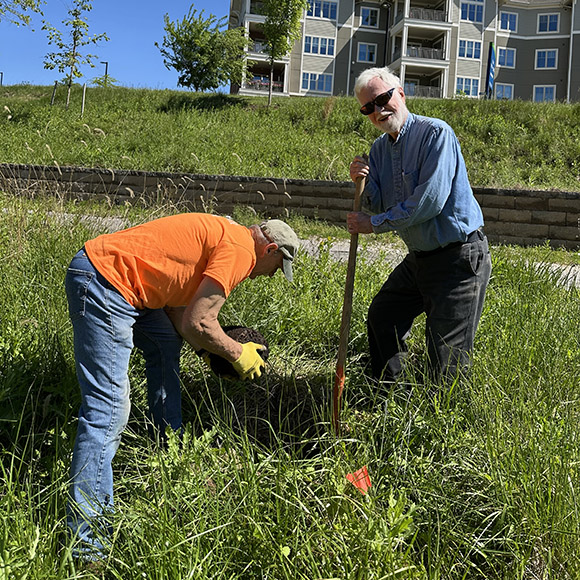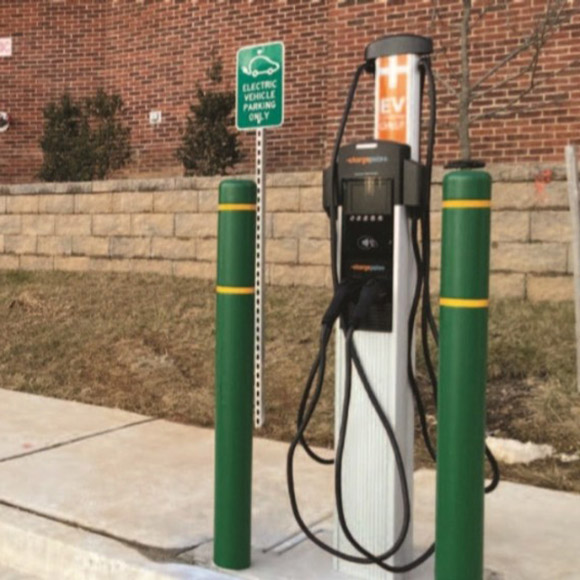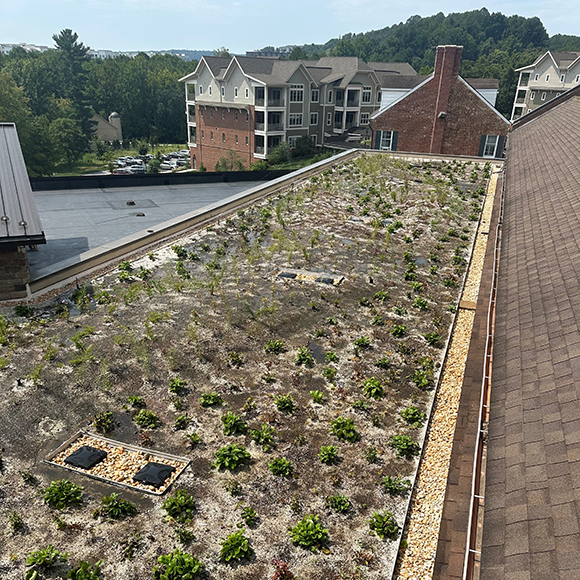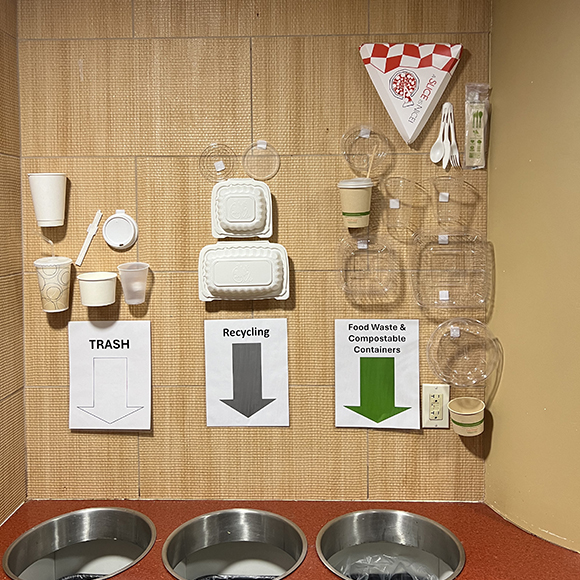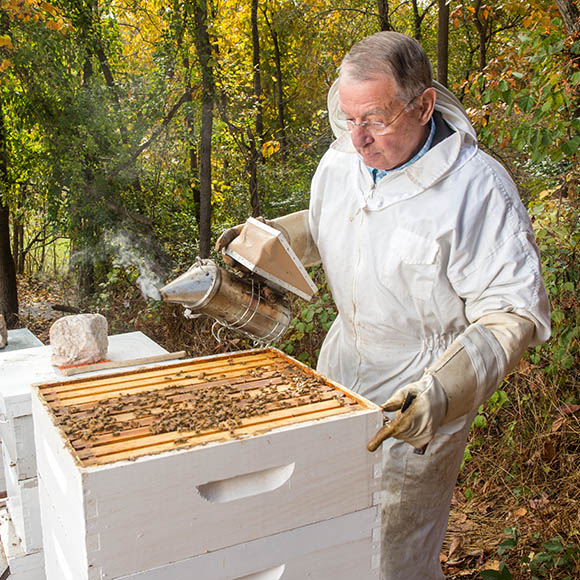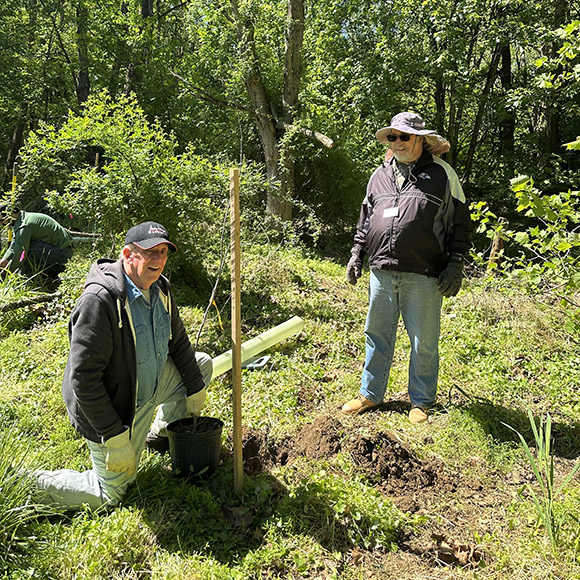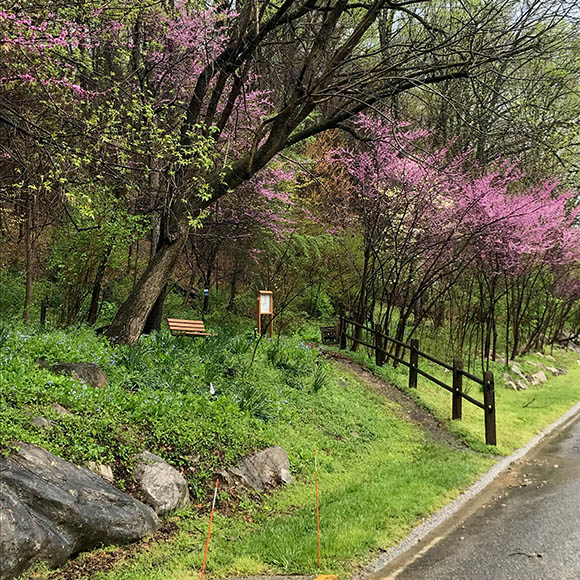A Commitment to Environmental Stewardship
At Broadmead, sustainability isn't just a priority - it's a way of life. In order to best serve our planet, and to maintain the unspoiled natural beauty of our 94-acre countryside campus, we are committed to making sustainable practices an integral part of our lifestyle. We take a holistic approach to creating a healthier, safer, and more prosperous future for our natural environment, and are truly dedicated to upholding the Quaker belief of concern for the Earth and the wellbeing of all who live in it.
Meet Our Vice President for Sustainability
Broadmead is honored to have Gina Mathias, Broadmead's VP of Sustainability, leading our community towards a more sustainable and responsible future. Tasked with the development and administration of a multi-faceted, multi-year sustainability plan, Gina’s role entails matters such as electricity usage, water and rainwater runoff, recycling and composting, new buildings, energy efficient equipment, and more. With her extensive background in sustainability management, she develops and implements strategies and programs that strengthen and expand our commitment to sustainable initiatives and community growth.
Contact Gina About Broadmead’s Sustainability Initiatives
Sustainability in Action
Our commitment to sustainability goes beyond just reducing our own energy consumption; it also drives us to continue to make a positive, lasting impact on the world around us. Broadmead is currently utilizing the following sustainability initiatives throughout our community:
Level II Accreditation by ArbNet
Broadmead holds a Level II Certification by The ArbNet Arboretum Accreditation Program and The Morton Arboretum for achieving particular standards of professional practices deemed important for arboreta and botanic gardens. The ArbNet Arboretum Accreditation Program is the only global initiative to officially recognize arboreta at various levels of development, capacity, and professionalism. Broadmead is also recognized as an accredited arboretum in the Morton Register of Arboreta, a database of the world’s arboreta and gardens dedicated to woody plants.
Level 2 accreditation requires an arboretum to have at least 100 different species of trees, a paid arborist or horticulturalist, an educational program on trees, and a collections policy. The “arboretum” designation requires conserving, maintaining and protecting the community’s tree canopy, fostering a sense of stewardship and caring for the Earth.
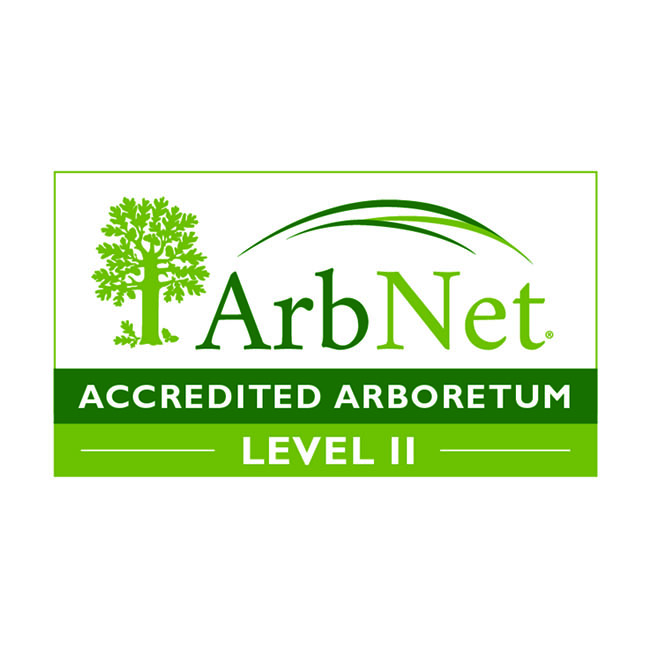
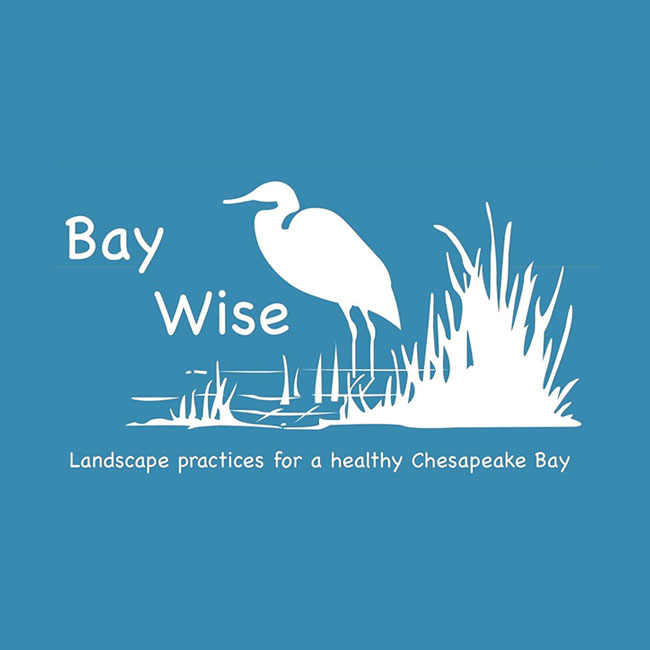
Bay-Wise Certified
Managed by The University of Maryland Extension (UME), the Bay-Wise Certification initiative focuses on landscape practices that help keep local waterways, the Chesapeake Bay, and our environment healthy.
Bay-Wise certification is granted to those who have demonstrated environmentally-sound landscape management approaches in eight specific areas: control of stormwater runoff, encouraging wildlife, protecting the waterfront, mowing/watering efficiently, managing pests with Integrated Pest Management (IPM), mulching appropriately/recycling yard waste, fertilizing wisely, and planting wisely. Broadmead is honored to be Bay-Wise certified since 2022.
Certified Wildlife Habitat
Broadmead maintains status as a Certified Wildlife Habitat by the National Wildlife Federation. This certification demonstrates that Broadmead provides critical elements and habitat for local and migratory species, including food, water, cover, places for wildlife to raise their young, and continuing sustainable practices.
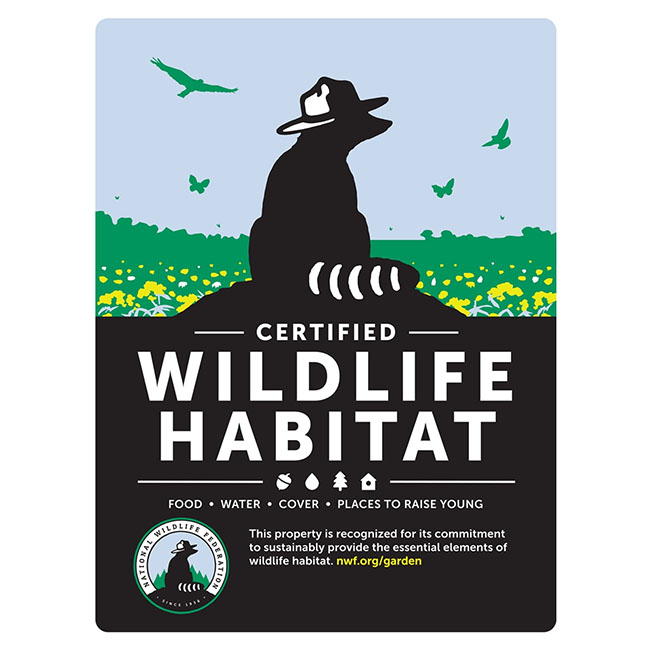
- Broadmead has a comprehensive sustainability plan guiding its efforts to be as environmentally sustainable and climate resilient as possible
- Sustainable management programs for the care and well-being of tree canopies and grounds
- Planting of native or adapted species to create a diverse landscape that attracts wildlife and minimizes erosion and stormwater runoff
- Transitioning of our vehicle fleet to hybrid/electric and installation of electric car chargers for residents
- Green roof planted with native plants that provide insulation for the building, visual beauty for assisted living residents, and resources for pollinators and birds
- Community-wide, efficiently managed recycling of materials to reduce waste that goes to the Baltimore County landfill and beyond
- Prioritizing the purchase of locally sourced, sustainable/reusable products when available
- Installation of energy-saving systems, such as ENERGY STAR® appliances, smart controls, LED lighting, and efficient heat pumps
- LEED certified Hillside Homes
- Sustainable landscaping practices that limit the use of harmful chemicals
- Upgraded insulation, efficient windows, efficient flow showers and faucets integrated throughout our Garden Homes
- Use of zero VOC paint, Green Label Plus certified flooring, and non-toxic, green cleaning products to ensure higher air quality
- Campus-wide food waste composting program that diverts food scraps from the landfill and creates a rich sustainable compost while supporting local Maryland business
- Reusable, compostable, and recyclable take-out containers are used in campus restaurants
- Resident-run Sustainability Committee
- And so much more!
Watch as Steve Gurney with Positive Aging Community hosts an in-depth discussion with Gina Mathias, Vice President of Sustainability at Broadmead, that explores how senior living providers can address the needs of current and future generations to help ensure a balance between economic growth, environmental care and social well-being.

